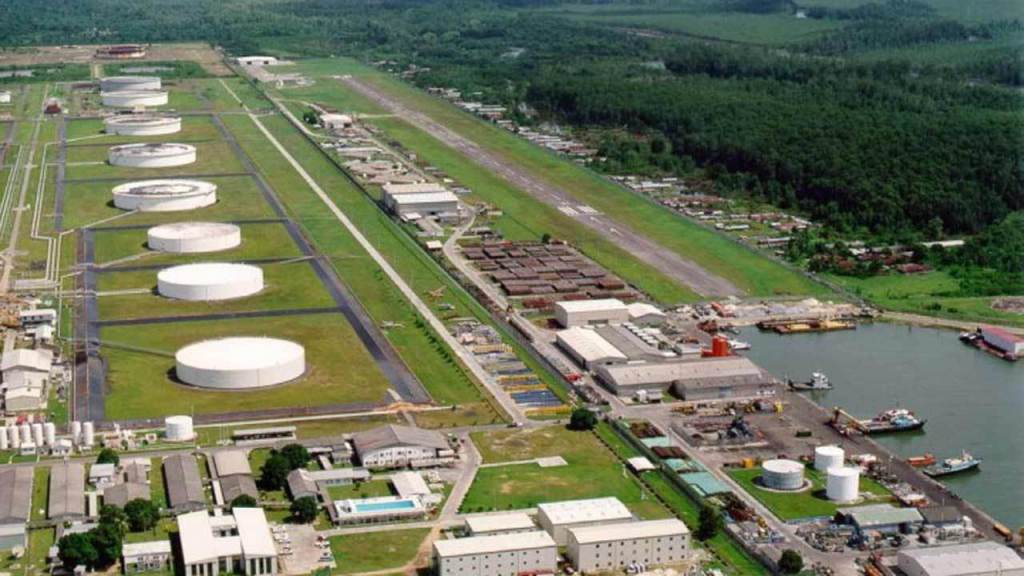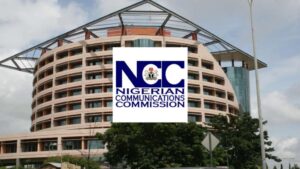
The oil states have a total domestic debt stock of N1.25 trillion as at March 2019, according to official data released by the Debts Management Office (DMO).
This is coming at a time figures from the Federal Ministry of Finance revealed that the nine oil states have collectively received N44.68 trillion from the Federation Account Allocation Committee (FAAC) as 13 percent mineral derivation revenue from June 1999 to December 2018.
These figures don’t include the monthly statutory allocations and the revenue internally generated by the states.
Based on the provisions of the Constitution, states are entitled to 13 percent of revenues derived from minerals exploited within their borders. As well as receiving the derivation fund on oil produced on their lands, littoral oil states also get the same percentage from oil derived within a certain distance offshore.
Six of the states – Akwa Ibom, Rivers, Bayelsa, Cross River, Delta and Edo– belong to the oil rich Niger Delta or South South region of the country.
The others are Imo and Abia states from the South East and Ondo in the South West.
But Cross River which had hitherto earned 13 percent derivation money is no longer an oil producing state having lost its 76 oil wells to Akwa Ibom after a Supreme Court ruling in July 2012.
The oil-producing region also benefits from other interventionist agencies, like the Ministry of Niger Delta, Niger Delta Development Commission (NDDC), the Amnesty Programme and oil companies.
Analysis of FAAC statutory allocations in 2018 revealed that Delta state got N285 billion, Akwa State N272 billion, Rivers N237 billion, Bayelsa N192 billion, Edo N112 billion, Ondo N108 billion, and Cross River N91 billion.
The N1.2trillion debt trap
The DMO data shows that of the N1.25 trillion debt stock, the six South-South states with a combined population of 21.04 million own N1.04 trillion.
Their population figure amounts to 15.13 percent of the total Nigerian population based on the 2006 Census records.
Rivers leads the pack with N225.59 billion, followed by Delta N223.44 billion, Akwa Ibom N199.77 billion, Cross River N167.25 billion, Bayelsa N133 billion and Edo N86.37 billion.
The three oil-producing states outside the South-South region with a total population of 10.1 million owe N217.66 billion within the period. The states are Imo with N97.85 billion, Abia N62.85 billion and Ondo N56.96 billion.
N44 trillion revenue in 19 years
Daily Trust analysis of FAAC records show that the nine states raked in over N44 trillion as derivation revenue during the 19 – year period.
Akwa Ibom got N1.47 trillion, Bayelsa N1.09 trillion, Cross River N278.12 billion, Delta N39.9 trillion, Edo N84.54 billion and Rivers N1.44 trillion.
Others are Abia N69.19 billion, Imo N69.59 billion and Ondo N258.02 billion.
States take loans they don’t need – Senator
Many states go for loans they don’t actually need, former chairman of Senate Committee on Foreign Loans, Shehu Sani said.
He said the states obtained loans to embark on projects that can’t repay the loans. “The oil states go for loans because the creditors are willing to give them because of their apparent liquidity,” the senator said.
Mr Sani said because the state assemblies don’t debate loans, the governors are free to take loans at will.
He said some governors take loans to execute projects they can execute with their budgets.
He said some states like Edo and Cross River have taken so much loans that they are now ineligible for further loans.
Daily Trust findings have shown that most of the projects the oil states executed with the large chunk of the loans are mostly white elephant projects. For instance, the Cross River’s multi-billion Tinapa project is now moribund.
Also, the multi-billion 30,000-seater Akwa Ibom International Stadium can’t generate any revenue let alone defray its cost.
Other mega projects embarked upon by the oil states include the ongoing Agge Deep Seaport by the Bayelsa state, the N41 billion Ibom Specialist Hospital in Akwa Ibom, among others.
Other abandoned projects include the 18-storey multi-billion naira Bayelsa Towers Hotel, N120 billion Ibom Tropicana Entertainment Centre, Uyo; the 200-bed multi-billion naira General Hospital in Benin which is yet to begin operations nearly three years it was commissioned, among others.
Oil money creates false impression of wealth – NEITI expert
The oil- producing states are the most indebted among subnational government because of the false impression of oil wealth, Dr Dauda Garuba, a natural resource expert told Daily Trust.
He said because derivation revenue falls monthly, the tendency is for Niger Delta governors to be over-ambitious in planning and wasteful in spending.
“Years back, it was revealed in NEITI’s Fiscal Allocation and Statutory Disbursement (FASD) audit that Bayelsa spent 140% worth of its allocation between 2007 and 2011.
“The same report shows that Gombe and Nasarawa state with little allocation did better with the little allocations to them in terms of public financial management,” he said.
Garuba, who is a technical adviser to the executive secretary of NEITI, said “if you ask me, natural resource wealth has a way of under-developing states without good development plans. It creates the impression of free life, lack of seriousness and corruption. The observed debt condition of oil producing states of the Niger Delta is directly related to these.”
He said “a critical look at the oil-producing region does not in any way suggest anything close to that amount ever got there. Except for corruption, nothing explains why Niger Delta states should not be developed.”
Debts result of lack of economic planning – Development specialist
High level of indebtedness is as a result of lack of proper economic planning and non-compliance with rules of budget making and implementation, Dr Ukoha Ukiwo, a development specialist and member of the Nigeria Natural Resource Charter panel of experts, said.
He said the situation is not helped by the fact that most administrations inherit huge debt profile from previous administrations. “Debts sometimes mount because new governments start new projects without completing ongoing ones they inherited and this may affect dividends that the completion of such projects would have attracted,” he said.
He said relative to other states, the oil producing states generally have sizable ongoing capital projects. “The issue is the extent to which the projects are fit for purpose and provide value for money. There is also the challenge that arises from the fact that right balance of capital and recurrent expenditure has not been reached because of the high cost of running government in the region,” he said.
‘Governors build white elephant projects’
Key factors responsible for the oil states indebtedness are mismanagement and misapplication of resources, embarking on disjointed, poorly considered and irrelevant projects, according to Mr Fyneface Dumnamene Fyneface, an activist based in Port Harcourt, Rivers state.
Fyneface, a project officer of Social Action and executive director, Youths and Environmental Advocacy Centre, said the oil states spend funds on white elephant projects to enable them settle their political supporters with contracts that most of them are not executed after receiving upfront payments. He said the oil bearing states have no reason to be at the top of the list of highly indebted states in Nigeria because they receive more revenue than other states.
What the oil states should do
Dr Garuba said the states in the Niger Delta “should redefine governance in a sense that would address basic needs of the society. This should be led by the governors. The citizens would need to brace up in their demand for accountability and participatory governance.”
There is need for public awareness on the implications of public loans, and civil society organisations should focus their advocacy on public loans, Senator Sani said.
To Comrade Fynface, the state houses of Assembly should properly scrutinize request for loans from state governors and ensure that they are tied to projects of necessity before approving them.
A development specialist Dr Ukiwo advised that growing the private sector will help in trimming the debt profile.
“The government should focus on creating the enabling environment for private sector investment. This should be investments that should create jobs and produce tax revenue, furthering economic diversification.
Improvement in public finance management (crucially budget management) will also help,” he said.
You may be interested

Arteta Provides Injury Updates On Five Arsenal Players Ahead Palace Clash
Webby - December 20, 2024Arsenal manager Mikel Arteta has revealed that Declan Rice and Riccardo Calafiori are both available to be in the Gunners…

Carabao Cup: Spurs Edge Man United In Seven-Goal Thriller To Reach Semi-finals
Webby - December 19, 2024Tottenham Hotspur edged Manchester United 4-3 in the quarter-finals of the Carabao Cup on Thursday.Spurs raced to a 3-0 lead…

Pogba’s Brother Sentenced To Three Years In Prison
Webby - December 19, 2024Mathias Pogba, brother of former Manchester United star Paul Pogba, was sentenced Thursday by a Paris criminal court to three…





















![American Pastor, David Wilson Seen Eating The Box Of Woman Who Isn’t His Wife [Video]](https://onlinenigeria.com/wp-content/uploads/2019/10/american-pastor-david-wilson-seen-eating-the-box-of-woman-who-isnt-his-wife-video-150x150.jpg)








